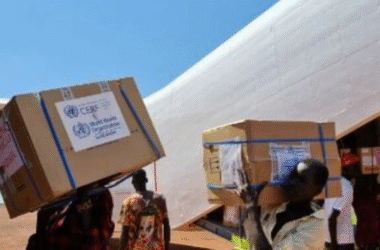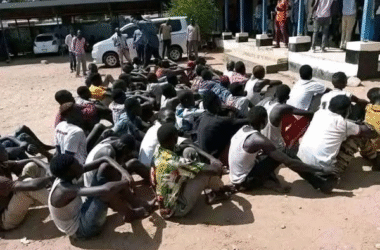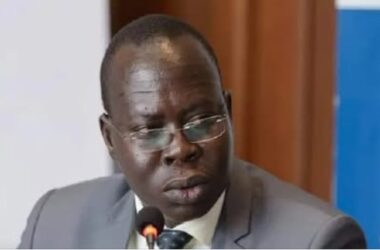By Yiep Joseph
Stakeholders in South Sudan’s peace agreement have called on the presidency to bring new faces to the National Transitional Committee (NTC).
During a security mechanism meeting in Juba, Gen. Bior Leek, a member of the Former Detainees (FDs), called on the presidency to restructure the NTC to avoid further disappointment in peace implementation.
Bior’s concern came in response to the recent extension of the transition government for two years, after the peace parties failed to implement the 2022 peace roadmap.
“I urge the presidency to look into the NTC and reform it. Bring those who are serious about the implementation, so that the people of this country will trust us.”” Bior said.
“I urge the government, president, and vice presidents to look into those who are tasked with monitoring the agreement, change the personalities, bring new faces to implement” he said.
Bior claimed that, should the government continue with the previous members in the committee, the implementation would continue to failed.
“But once we stick with those people previously in the NTC, I think it will be zero work come 2026,” he added.
The National Transitional Committee (NTC), which is headed by President Kiir’s security advisor, Tut Gatluak, is a body tasked with overseeing the implementation of the 2018 peace deal.
However, the nonstop extension from 2018 until 2026 has raised concern from peace stakeholders and the Citizens on whether the committee is performing its task as mandated.
Gen. Bior claimed that the alternative method to end extensions is to bring new faces to the NTC in order to develop new modalities to implement the agreement, before 2026 ends.
Beside lack of resources, Bior expressed that the continued extension could be unseriousness by NTC. He noted that the current extension can also be meaningless should the same faces remain.
“The roadmap failed simply because the personalities that were tasked with the monitoring and implementation were not serious, and if they are the ones tasked to monitor and implement the extended two years (2024-2026), I think they will fail,” he said.
Gen. Bior emphasized the need for the government to define a proper source for funding the peace agreement, citing that a lack of resources continue to be a challenge.
‘So, it will be difficult for us to implement the remaining tasks because we do not own the authority of funding; we will not be sure from where we are going to get the funding,” he said.
He stressed that the refusal of the international community to fund the agreement will make implementation difficult.
“So, we will continue extending because we are not serious about implementing the tasks and we have no money,” he said.
“When we look at the unified forces, according to the report that was given to the high-level committee, it is 10% that has been implemented and 33% ongoing, which means that we are not serious,” he said.
He expressed that the government has a lot to do in order to gain public trust.
“I myself, general Bior, see to it. We have many critical issues that we can look into if we do not want to be stoned in the street of Juba, but the way we are going, I think the people of this country became bitter,” he said.
He expressed that even in 2026 the votes may not turn up for the election due to a lack of trust.
“The turnout to that election if we reach 20% than we are ok, but when I see to it there will be no turnout even after two years nobody will turnout unless we have to see other issues so that we make our people happy.”
On his part, Chuol Ruey, SPLM senior representative to CTSAMVM, called on peace parties to commit to peace implementation.
He added that it was better to have extensions than an election that may result in conflict.
Last year, the National Parliament summoned chairperson of the National Transitional Committee (NTC), Tut Gatluak, to explain delays in implementation of security arrangements; however, the committee has continued attributing the failure to lack of funding.




